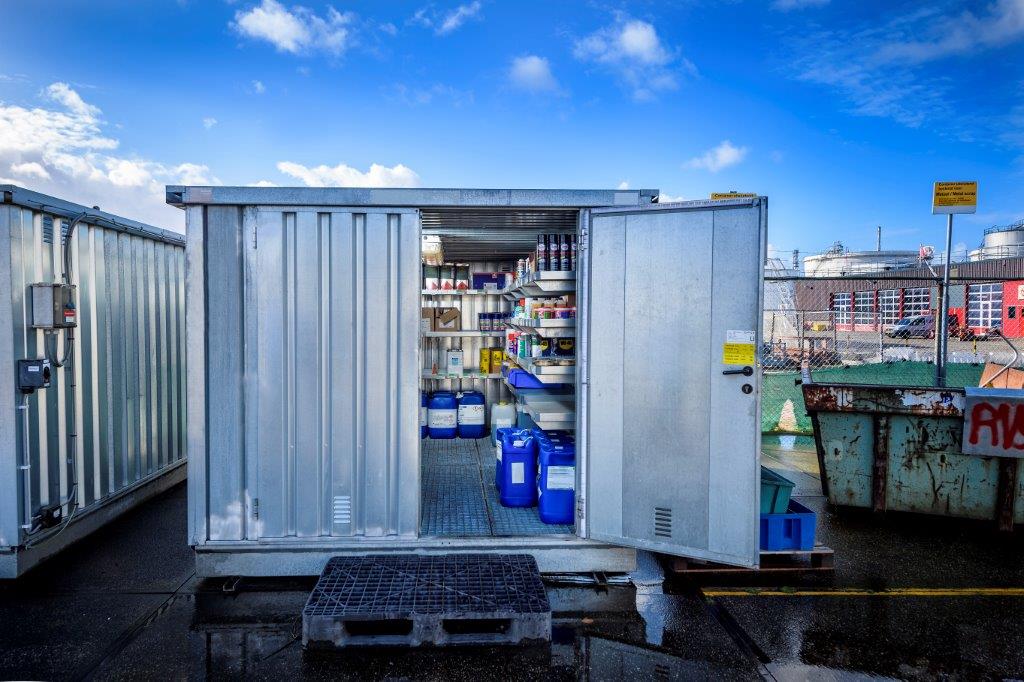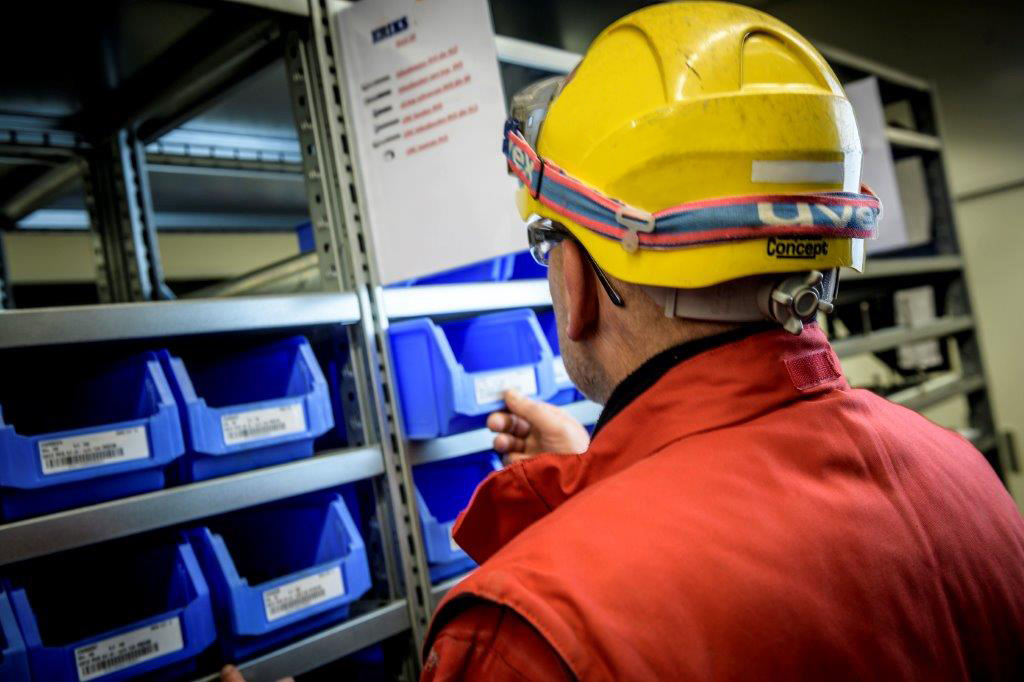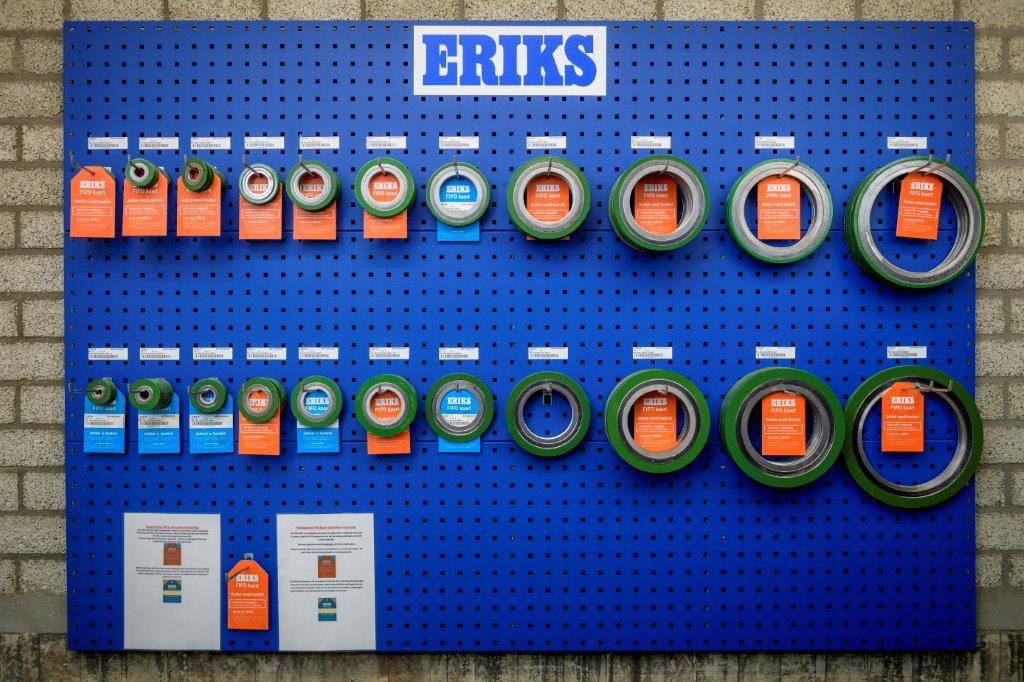3D printing supports innovation
In this article, we tell you exactly what 3D printing is used for and what benefits it brings to our...
As a professional within the chemical industry you understand that effective MRO spare parts management goes hand-in-hand with efficient, cost-effective plant maintenance in the chemical industry.
However, stock-outs still happen. What could be the root cause?
We share a few of these insights from our cross-industry experience and how they can improve your plant maintenance and deliver more savings.

MRO spare parts, or MRO supply chain management can be described as the co-ordination of all activities that provide the correct stock of items needed to ensure smooth operation of your assets.
Data shows that without optimised MRO spare parts management, plant maintenance (both planned and unplanned) accrues higher costs and longer downtime. These costs come from having the wrong items in stock, unnecessary pressure on working capital, holding costs for storage space, and extra replenishment and expediting time.
In many large production facilities, MRO spare parts management falls within a triangle of individuals or teams working together:

MRO spare parts management is a shared responsibility between these teams. However, the way many companies in the chemical industry are organised often leaves these roles divided in a suboptimal way.
Each team has to focus on their own priorities and it’s difficult for any single department to see the unit’s whole MRO spare parts picture clearly. It has nothing to do with the talent of the individuals or teams, merely the way processes have been organised.
Optimal MRO management means continually keeping up with changes in usage, supplier lead times, engineering updates in the Bill of Materials, and so on. Only with someone dedicated to continuously finding a new equilibrium, can significant cost reductions be realised. Not every company has such a person available with the right competences and mandate. But a trusted external supplier can deploy a team of experts to put this into practice.
Here are three key improvements in MRO spare parts management we can share based on our experience:
1. Make a clear distinction between different roles
A chemical plant procurement department will have different priorities compared to the warehouse manager. You as a maintenance manager also need to focus on your own KPIs. But when it comes to collective responsibility for managing MRO spare parts, we often see difficulty assigning concrete tasks to individuals or departments.
When everybody shares a responsibility but nobody has full oversight, it’s easy for everyone to assume someone else is taking care of it – so often nobody actually does!
We recommend making these responsibilities clear and distinct. By bringing in an external pair of eyes and experience in this field, one can take on this oversight, help assign roles and tie up those loose ends so nothing slips through.
2. Improve data quality
Data is the lifeblood of MRO spare parts management. Several things need to be known and accurately registered in your system. These include understanding how your current stock is actually linked to your assets, what parts in your Bill of Material (BOM) are highly critical, and what the current lead time is of maintenance items sourced from existing stock.
A strategic reorganisation of data can be a big task, which often nobody has the time or resources to do. An external supplier with excellent knowledge of parts and processes can ensure your data is working for you.
By cleansing your MRO database based on technical know-how and putting rigorous strategies in place to keep it accurate, they can help avoid obsolete items and grey or dead stock.

3. Critically assess current stock
A technical point of view is essential here. Many chemical plants run on assets installed decades ago and reviewed and updated many times since then. If your stock is based on the original BOM, you might find out that these components aren’t available anymore. There might be more reliable products available compared to those that have been developed since the commission of the asset. This can improve your uptime.
It takes a specialist technical supplier to come in and bring an objective view and suggest updates and improvements to your current stock. An external supplier can critically assess and update your BOM.
To help alleviate some of your biggest challenges, you must simplify, streamline and optimise your stock management and inventory processes.
ERIKS is not only an MRO supplier but an original equipment manufacturer (OEM). Our MRO business profits from the innovation power of our OEM business. Besides the chemical industry, we also operate in the food and pharmaceutical fields. This broad, multinational engagement gives us unique insight into industry-wide issues and solutions.

.

We hope these three suggested improvements have given you food for thought on optimising your MRO spare parts. There are more unique insights from ERIKS in our latest stock management report. Download the report to help reduce your unplanned downtime and find further savings.
Take a look at our latest updates...
In this article, we tell you exactly what 3D printing is used for and what benefits it brings to our...
ERIKS NV
P.O. Box 19108
3501 DC Utrecht
The Netherlands
E info@eriks.com
37 01 32 89
VAT Number
NL003.076.490.B02
